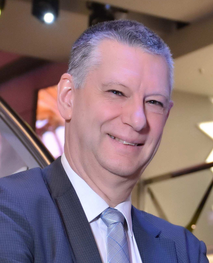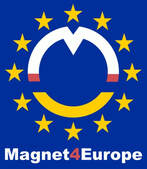 Walter Sermeus is Professor of Leuven Institute for Healthcare Policy, KU Leuven. He was already the European coordinator of the RN4CAST project (Nurse Forecasting in Europe 2009-2011) and is now the Director of the Magnet4Europe study. In our "Four Questions to" column, we asked Walter about Magnet4Europe. 1. What particularly motivates you in your daily work in the Magnet4Europe project? The main critique of many academic colleagues on nurse staffing research is that it is mainly observational. Although there is a lot of evidence that staffing levels, skill-mix and work environment has an impact on quality of care and job outcomes, the evidence is still called weak. This is the first large scale multicenter trial in implementing the conditions of good working environments in a large number of hospitals. What motivates me most is the impact on the daily lives of patients and health professionals. 2. The Covid-19 pandemic has changed the way we live, work and interact. How has the pandemic changed the Magnet4Europe project and how have you overcome challenges? The project started a few months before the outbreak of Covid-19 in Europe. When it happened, the first reaction was to pause the project for a few months, but then it became obvious that we probably need to live with Covid-19 during the full life cycle of the project. And moreover, we learned that in these Covid-19 times, the need for good working conditions for nurses and physicians is more needed then even before. So we adapted the communication and implementation plan that was initially rather traditional in regular online learning collaboratives, online collaboration, revision of data collection. 3. After 2 years into the Magnet4Europe study, what has made you personally particularly proud? The main accomplishment of the project is that after 2 years of work we are mainly still on track in meeting the aim and objectives of the project. And the drop-out of hospitals in these intensive covid-19 times have been much smaller than expected. And it is amazing to see and hear the energy and motivation that flows from the European hospitals over the ocean to their US twins and vice versa. More than ever, I’m convinced that the Magnet intervention is a life-saving intervention (as well for patients, as well for nurses and physicians). What I also learn is that the Magnet intervention is so much more than improving the working condition of nurses and physicians. It is restoring and reinforcing their pride, confidence and engagement and is giving back their main passion and inspiration when they choose to be a nurse or a doctor. 4. Are there early lessons for successfully conducting such a large research project across multiple countries, hospitals, and teams? The project is incredible ambitious and complex. The EU review committee in October was impressed by the work being performed and the progress being made in these difficult Covid-19 times. A few elements might contribute to the success. First of all, we have the best experts and scientists in this consortium. We have the advantage of working together during the RN4CAST-project for many years leading to mutual trust, respect and a strong commitment. Leadership is key with intense communication and consultation. Moreover, the visionary leadership of Linda gives us a strong sense of direction. Although the budget is way too tight for managing such a large project, we see that European and US hospitals spend so much of their time and resources into the project because they strongly believe in it, what will result in strong results and impact. About Walter Sermeus Walter Sermeus is professor of healthcare management, Leuven Institute for Healthcare Policy, University of Leuven KU Leuven, Belgium. He holds a PhD in Public Health, a MSc in Biostatistics, a MSc in Healthcare Management and a BA in Nursing. He is Head of KU Leuven WHO Collaboration Centre on Human Resources in Health Research & Policy. He is Senior Fellow to the Center for Health Outcomes and Policy Research at the University of Pennsylvania School, USA, Fellow of the European Academy of Nursing Science, the American Academy of Nursing, the Belgian Royal Academy of Medicine, the Royal Society of Medicine, UK and the Academia Europaea.
Comments are closed.
|

